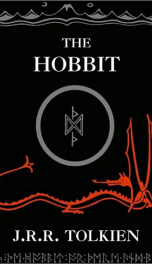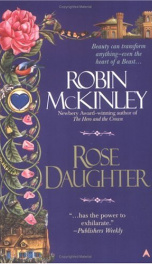Piper H. Beam
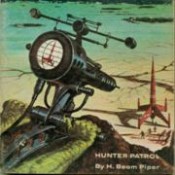
Henry Beam Piper (March 23, 1904 – c. November 6, 1964) was an American science fiction author. He wrote many short stories and several novels. He is best known for his extensive Terro-Human Future History series of stories and a shorter series of "Paratime" alternate history tales. He wrote under the name H. Beam Piper. Another source gives his name as "Horace Beam Piper" and a different date of death.[1] His gravestone says "Henry Beam Piper". Piper himself may have been the source of part of the confusion; he told people the H stood for Horace, encouraging the assumption that he used the initial because he disliked his name. On a copy of "Little Fuzzy" given to Charles O. Piper, Beam's cousin and executor, he wrote "To Charles from Henry." Piper was largely self-educated; he obtained his knowledge of science and history "without subjecting myself to the ridiculous misery of four years in the uncomfortable confines of a raccoon coat." He went to work at age 18 as a laborer at the Pennsylvania Railroad's Altoona yards in Altoona, Pennsylvania. He also worked as a night watchman for the railroad. Piper published his first short story, "Time and Time Again", in 1947 in Astounding Science Fiction, and was primarily a short story author until 1961, when he made a productive, if short-lived, foray into novels. He collected guns and wrote one mystery, Murder in the Gunroom. He committed suicide in November 1964 in Williamsport, Pennsylvania, bringing his career to a premature conclusion. The exact date of his death is unknown; the last entry in his diary was dated November 5 ("Rain 0930"), and the date his body was found is reported as November 9 or November 11 by various sources. According to Jerry Pournelle's introduction to Little Fuzzy, Piper shut off all the utilities to his apartment, put painter's drop-cloths over the walls and floor, and took his own life with a handgun from his collection. In his suicide note, he gave an explanation that "I don't like to leave messes when I go away, but if I could have cleaned up any of this mess, I wouldn't be going away. H. Beam Piper'" Some biographers attribute his act to financial problems, others to family problems; Pournelle wrote that Piper felt burdened by financial hardships in the wake of a divorce, and the mistaken perception that his career was foundering (his agent had died without notifying him of multiple sales). Editor George H. Scithers, who knew Piper socially, has stated that Piper wanted to spite the ex-wife he despised: by committing suicide, Piper voided his life insurance policy, and prevented her from collecting. An unpublished story, "Only the Arquebus", has gone missing since his suicide; it is probable that he destroyed it along with many of his personal papers. His output was eventually purchased by Ace Science Fiction and reprinted in a set of paperbacks in the early 1980s. Many of these have since gone out of print, though his two best-known arcs were again reprinted by Ace in 1998 and 2001. Late in his career, Piper corresponded with Pournelle, who was the Ace editor who helped reprint some of his novels. Many of his works have been reprinted recently. His copyrights appear to have been allowed to lapse, permitting Project Gutenberg to distribute his work online. Piper's stories fall into two camps: stark space opera, such as Space Viking, or stories of cultural conflict or misunderstanding, such as Little Fuzzy or the Paratime stories. A running theme in his work is that history repeats itself; past events will have direct and clear analogues in the future. The novel Uller Uprising is the clearest example of this, being based on the Sepoy Mutiny. A similarly clear example is the very name of Space Viking; although that novel is not a direct reinterpretation of a specific historical precedent, a later theme in the book involves the takeover of a planet in a manner reminiscent of the rise of Adolf Hitler. Piper's characterization was rooted in the notion of the self-reliant man: an individual able to take care of himself and both willing and able to tackle any situation which might arise. This is perfectly exemplified in a bit of dialogue found in his short story "Oomphel in the Sky" (1960): "He actually knows what has to be done and how to do it, and he's going right ahead and doing it, without holding a dozen conferences and round-table discussions and giving everybody a fair and equal chance to foul things up for him." As a result, his yarns tend towards the heroic, and the conflict is usually driven externally. Piper was interested in General Semantics. It is explicitly mentioned in Murder in the Gunroom, and its principles, such as awareness of the limitations of knowledge, are apparent in his later work. Piper did not live to see how influential he was to other science fiction writers. Michael McCollum's first novel, A Greater Infinity, was inspired by Piper's notion of the Paratime Police (and to a lesser extent by Isaac Asimov's The End of Eternity). The Paradox Patrol, in a series of stories by F. Gwynplaine MacIntyre published in Analog Science Fiction and Fact, are a parody of Piper's Paratime Police, although they also pay homage to Alfred Bester in their enforcement of "Bester's Law". Robert Adams' Castaways in Time is similar in many ways to Piper's Lord Kalvan of Otherwhen. Adams' book has a group of late-1970s Americans transported to an alternate medieval England where the Roman Catholic Church controls the supply of gunpowder. Jerry Pournelle's Janissaries series is an obvious tribute to Lord Kalvan, with several early scenes being very close echoes of scenes in Piper's work. Charles Stross's Merchant Princes series explicitly acknowledges H. Beam Piper's Paratime as an influence. Piper's story Omnilingual has been much reprinted and has been referred to in many subsequent stories dealing with the translation of alien languages. Elizabeth Bear has stated that her novel Undertow was inspired by Little Fuzzy. The Terro-Human Future History is Piper's detailed account of the next 6000 years of human history. 1942, the year the first fission reactor was constructed, is defined as the year 1 A.E. (Atomic Era). In 1973, a nuclear war devastates the planet, eventually laying the groundwork for the emergence of a Terran Federation, once humanity goes into space and develops antigravity technology. The story "The Edge of the Knife" (collected in Empire) occurs slightly before the war, and involves a man who sees flashes of the future. It links many key elements of Piper's series. Most of the stories take place during the next millennium, during the age of the two Federations. Most notable among these novels are the three Fuzzy novels (starting with Little Fuzzy), which concern the recognition of a peculiar alien species as sapient, and the efforts of the two species to learn to live together on the Fuzzies' home world of Zarathustra. The Federation collapses in the System States War and following Interstellar Wars (a bit of which can be seen in The Cosmic Computer), leading to a lengthy interregnum, during which there is no central human power. Space Viking is set in this chaotic period. The interregnum ends with the founding of the first Empire. At least five empires rule humanity during the next four thousand years, but only a handful of short stories (collected in Empire) depict this period. Piper generally portrays these empires as benign, ruled by enlightened despots. Piper's future history resemble in some ways Isaac Asimov's Foundation Trilogy, and was probably influenced by it, especially since both authors wrote for John W. Campbell. A much shorter series of alternate history stories is Piper's Paratime sequence, collected in Paratime, followed by the novel Lord Kalvan of Otherwhen. These stories concern the Paratime Police, a law enforcement outfit from a parallel world which has learned how to move between timelines. They jealously guard the secret, even as they mine other worlds for their resources. Notably, it appears that humans are in fact Martian refugees who escaped a calamity on their home planet and migrated to Earth. Unlike many alternate histories, these stories tend to focus on points of divergence far back in the past. For instance, Lord Kalvan involves a police officer who is accidentally transported to a world where the ancestors of modern Europeans failed to move into Europe. Instead, the nomadic tribes migrated across Asia and into North America. The people living on the eastern coast of North American in this novel settled the area from the west, and still live in a medieval society. Many readers point towards the short story "Genesis" (in The Worlds of H. Beam Piper) to suggest that the Terro-Human Future History universe is in fact an alternate world in the Paratime universe, where the Martians' escape from Mars resulted in their forgetting their heritage and having to start over. However, in several letters to friends and in an article published in a fan magazine, Piper himself listed the true Paratime stories, and he never identified "Genesis" as one. Two sequels to the first two Fuzzy novels have been written: Fuzzy Bones (1981) by William Tuning ISBN 0-441-26181-7, and Golden Dream: A Fuzzy Odyssey (1982) by Ardath Mayhar ISBN 0-441-29726-9. Both books were contradicted by the eventual discovery and publishing of the manuscript of Piper's Fuzzies and Other People ISBN 0-441-26176-0. "...that it shall be no longer malum in se for a citizen to pummel, cowhide, kick, gouge, cut, wound, bruise, maim, burn, club, bastinado, flay, or even lynch a [government] jobholder, and that it shall be malum prohibitum only to the extent that the punishment exceeds the jobholder’s deserts. The amount of this excess, if any, may be determined very conveniently by a petit jury, as other questions of guilt are now determined."
do you like this author?
What readers are saying
What do you think? Write your own comment on this book!
write a commentWhat readers are saying
What do you think? Write your own comment on this author!
write a commentBook list
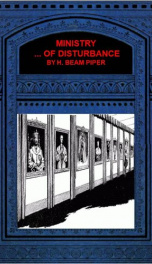
Ministry of Disturbance
Series:
Unknown
Year:
Unknown
Raiting:
2/5
The symphony was ending, the final triumphant pæan soaring up and up, beyond the limit of audibility. For a moment, after the last notes had gone away, Paul sat motionless, as though some part of him had followed. Then he roused himself and finished his coffee and cigarette, looking out the wide window across the city below--treetops and towers, roofs and domes and arching skyways, busy swarms of aircars glinting in the early sunlight
1958 science fiction story from a world famous American author of the twentieth century. “Ministry of Disturbance” is included into his Terro-Human Future History series, which detailed account of the next 6000 years of human history.
Show more
add to favoritesadd In favorites
1958 science fiction story from a world famous American author of the twentieth century. “Ministry of Disturbance” is included into his Terro-Human Future History series, which detailed account of the next 6000 years of human history.
Show more

Ullr Uprising
Series:
Unknown
Year:
Unknown
Raiting:
4.5/5
Kindle edition of Piper's work with an active table of contents.
Show more
add to favoritesadd In favorites
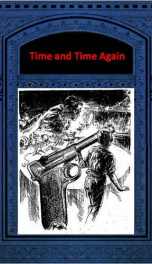
Time and Time Again
Series:
Unknown
Year:
Unknown
Raiting:
2/5
TIME AND TIME AGAINBY H. BEAM PIPERIllustrated by Napoli......To upset the stable, mighty stream of time would probably take an enormous concentration of energy. And it's not to be expected that a man would get a second chance at life. But an atomic might accomplish both—
Show more
add to favoritesadd In favorites
Book list

Ministry of Disturbance
Series:
Unknown
Year:
Unknown
Raiting:
2/5
The symphony was ending, the final triumphant pæan soaring up and up, beyond the limit of audibility. For a moment, after the last notes had gone away, Paul sat motionless, as though some part of him had followed. Then he roused himself and finished his coffee and cigarette, looking out the wide window across the city below--treetops and towers, roofs and domes and arching skyways, busy swarms of aircars glinting in the early sunlight
1958 science fiction story from a world famous American author of the twentieth century. “Ministry of Disturbance” is included into his Terro-Human Future History series, which detailed account of the next 6000 years of human history.
Show more
add to favoritesadd In favorites
1958 science fiction story from a world famous American author of the twentieth century. “Ministry of Disturbance” is included into his Terro-Human Future History series, which detailed account of the next 6000 years of human history.
Show more

Ullr Uprising
Series:
Unknown
Year:
Unknown
Raiting:
4.5/5
Kindle edition of Piper's work with an active table of contents.
Show more
add to favoritesadd In favorites

Time and Time Again
Series:
Unknown
Year:
Unknown
Raiting:
2/5
TIME AND TIME AGAINBY H. BEAM PIPERIllustrated by Napoli......To upset the stable, mighty stream of time would probably take an enormous concentration of energy. And it's not to be expected that a man would get a second chance at life. But an atomic might accomplish both—
Show more
add to favoritesadd In favorites

Temple Trouble
Series:
Unknown
Year:
Unknown
Raiting:
5/5
This story was published in 1951.Henry Beam Piper (23 March 1904 – ca. 06 November 1964) was an American science fiction author. He wrote many short stories and several novels. He is best known for his extensive Terro-Human Future History series of stories and a shorter series of “Paratime” alternate history tales.Piper’s stories fall into two camps: stark space opera and or stories of cultural conflict or misunderstanding.A running theme in his work is that history repeats itself; past events will have direct and clear analogues in the future.Piper’s characterization was rooted in the notion of the self-reliant man: an individual able to take care of himself and both willing and able to tackle any situation which might arise. This is perfectly exemplified in a bit of dialogue found in his short story “Oomphel in the Sky” (1960): “He actually knows what has to be done and how to do it, and he’s going right ahead and doing it, without holding a dozen conferences and round-table discussions and giving everybody a fair and equal chance to foul things up for him.”As a result, his yarns tend towards the heroic and the conflict is usually driven externally.Piper was interested in General Semantics. Its principles, such as awareness of the limitations of knowledge, are apparent in his later works.He greatly influenced the writings of Michael McCollum, Isaac Asimov, F. Gwynplaine MacIntyre, Alfred Bester, Robert Adams, Jerry Pournelle, Charles Stross, and Elizabeth Bear.
Show more
add to favoritesadd In favorites
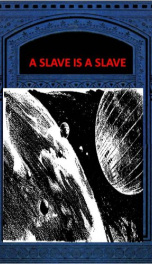
A Slave is a Slave
Series:
Unknown
Year:
Unknown
Raiting:
3/5
A SLAVE IS A SLAVEBY H. BEAM PIPERThere has always beenstrong sympathy for the poor,meek, downtrodden slave—the kindly little man, oppressedby cruel and overbearing masters.Could it possibly have been misplaced...?
Show more
add to favoritesadd In favorites
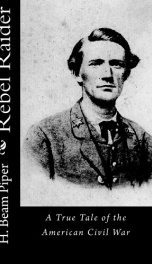
Rebel Raider
Series:
Unknown
Year:
Unknown
Raiting:
3/5
During the American Civil War, Jeb Stuart left John Singleton Mosby behind Northern lines "to look after loyal Confederate people." But before the war was over, Mosby did a lot more than that....
Show more
add to favoritesadd In favorites
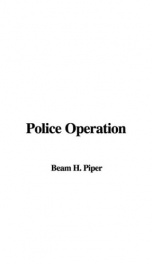
Police Operation
Series:
Unknown
Year:
Unknown
Raiting:
2/5
John Strawmyer stood, an irate figure in faded overalls and sweat-whitened black shirt, apart from the others, his back to the weathered farm-buildings and the line of yellowing woods and the cirrus-streaked blue October sky. He thrust out a work-gnarled hand accusingly.
A famous 1948 short story by a twentieth century American science fiction author, Henry Beam Piper.
Show more
add to favoritesadd In favorites
A famous 1948 short story by a twentieth century American science fiction author, Henry Beam Piper.
Show more
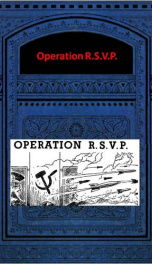
Operation R.S.V.P.
Series:
Unknown
Year:
Unknown
Raiting:
3.5/5
OPERATION R.S.V.PByH. Beam Piper
Show more
add to favoritesadd In favorites
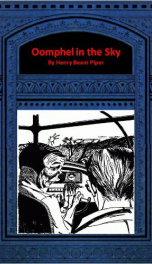
Oomphel in the Sky
Series:
Unknown
Year:
Unknown
Raiting:
3.5/5
OOMPHEL .... IN THE SKYBy H. BEAM PIPER...Since Logic derives from postulates, it never has, and never will, change a postulate. And a religious belief is a system of postulates ... so how can a man fight a native superstition with logic? Or anything else ...?
Show more
add to favoritesadd In favorites
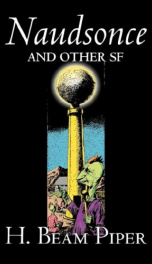
Naudsonce
Series:
Unknown
Year:
Unknown
Raiting:
2.5/5
A group of explorers sets down on an earth-like planet to get into contact with the natives, who resemble birds, with rooster crest on their heads. After several futile attempts earthmen realize that the way of communication of these creatures is unattainable for people. They are just unable to understand the language consisting of nothing but several words. During further research the explorers find out that crests serve to transport the sonic waves into tactile sensations, and the earthmen are not susceptible to the set of acoustical frequencies they use.
A short story by an American science fiction author of the twentieth century, Henry Beam Piper.
Show more
add to favoritesadd In favorites
A short story by an American science fiction author of the twentieth century, Henry Beam Piper.
Show more
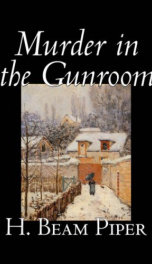
Murder in the Gunroom
Series:
Unknown
Year:
Unknown
Raiting:
4/5
A book with a thrilling and strained plot focusing on the events in the life of Lane Fleming who possesses one of the best collections of pistols and revolvers. One day he is found dead in his gunroom holding a Colt-type revolver in his hand. Everbody believes that this was an accident but his wife Gladys doubts it and wants to find the real reason of Lane's death. She employs Colonel Jefferson Davis Rand who works as a private detective and who has a big collection of pistols and revolvers himself. And he starts his investigation. He reveals that Lane's collection was desired but many people. Some of them even do not try to conceal this wish so it gets really difficult to find out who could go so far and kill Lane Fleming. Besides, it remains a mystery how it was possible to organize this murder. Moreover, in this story readers dive into the world of guns and gun-collecting, very exciting and intelligent. The story would be interesting for all knowers of guns and for those who even do not know the difference between Paterson .34's and a Texas .40.
Show more
add to favoritesadd In favorites

The Mercenaries
Series:
Unknown
Year:
Unknown
Raiting:
2/5
THE MERCENARIESBY H. BEAM PIPER .......Once, wars were won by maneuvering hired fighting men; now wars are different—and the hired experts are different. But the human problems remain!________________________________________
Show more
add to favoritesadd In favorites

Last Enemy
Series:
Unknown
Year:
Unknown
Raiting:
4/5
from the introductory: The last enemy was the toughest of all--and conquering him was in itself almost as dangerous as not conquering. For a strange pattern of beliefs can make assassination an honorable profession! *** Along the U-shaped table, the subdued clatter of dinnerware and the buzz of conversation was dying out; the soft music that drifted down from the overhead sound outlets seemed louder as the competing noises diminished. The feast was drawing to a close, and Dallona of Hadron fidgeted nervously with the stem of her wineglass as last-moment doubts assailed her. The old man at whose right she sat noticed, and reached out to lay his hand on hers. "My dear, you're worried," he said softly. "You, of all people, shouldn't be, you know." "The theory isn't complete," she replied. "And I could wish for more positive verification. I'd hate to think I'd got you into this--" Garnon of Roxor laughed. "No, no!" he assured her. "I'd decided upon this long before you announced the results of your experiments. Ask Girzon; he'll bear me out." "That's true," the young man who sat at Garnon's left said, leaning forward. "Father has meant to take this step for a long time. He was waiting until after the election, and then he decided to do it now, to give you an opportunity to make experimental use of it." The man on Dallona's right added his voice. Like the others at the table, he was of medium stature, brown-skinned and dark-eyed, with a wide mouth, prominent cheekbones and a short, square jaw. Unlike the others, he was armed, with a knife and pistol on his belt, and on the breast of his black tunic he wore a scarlet oval patch on which a pair of black wings, with a tapering silver object between them had been superimposed. "Yes, Lady Dallona; the Lord Garnon and I discussed this, oh, two years ago at the least. Really, I'm surprised that you seem to shrink from it, now. Of course, you're Venus-born, and customs there may be different, but with your scientific knowledge--" "That may be the trouble, Dirzed," Dallona told him. "A scientist gets in the way of doubting, and one doubts one's own theories most of all." "That's the scientific attitude, I'm told," Dirzed replied, smiling. "But somehow, I cannot think of you as a scientist." His eyes traveled over her in a way that would have made most women, scientists or otherwise, blush. It gave Dallona of Hadron a feeling of pleasure. Men often looked at her that way, especially here at Darsh. Novelty had something to do with it--her skin was considerably lighter than usual, and there was a pleasing oddness about the structure of her face. Her alleged Venusian origin was probably accepted as the explanation of that, as of so many other things. As she was about to reply, a man in dark gray, one of the upper-servants who were accepted as social equals by the Akor-Neb nobles, approached the table. He nodded respectfully to Garnon of Roxor. "I hate to seem to hurry things, sir, but the boy's ready. He's in a trance-state now," he reported, pointing to the pair of visiplates at the end of the room.
Show more
add to favoritesadd In favorites
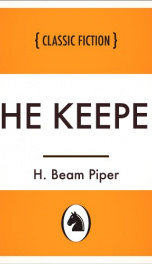
The Keeper
Series:
Unknown
Year:
Unknown
Raiting:
5/5
Evil men had stolen his treasure, and Raud set out with his deer rifle and his great dog Brave to catch the thieves before they could reach the Starfolk. That the men had negatron pistols meant little--Raud was the Keeper....
Show more
add to favoritesadd In favorites
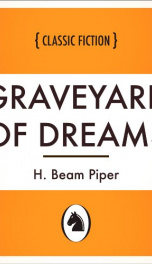
Graveyard of Dreams
Series:
Unknown
Year:
Unknown
Raiting:
2/5
Despite Mr. Shakespeare, wealth and name are both dross compared with the theft of hope-- and Maxwell had to rob a whole planet of it!
Show more
add to favoritesadd In favorites
What readers are saying
What do you think? Write your own comment on this author!
write a commentGenre
- Home & Garden / Animal Care & Pets / Horses / Showing & Training
- Literature & Fiction / Classics
- Literature & Fiction / Genre Fiction / Action & Adventure
- Religion & Spirituality / Christianity / Church History
- Literature & Fiction / Short Stories
- Business & Investing / Industries & Professions
- Science Fiction & Fantasy / Science Fiction
- Science Fiction & Fantasy / Science Fiction / Adventure
if you like Piper H. Beam try:
readers also enjoyed
What readers are saying
What do you think? Write your own comment on this author!
write a commentGenre
- Home & Garden / Animal Care & Pets / Horses / Showing & Training
- Literature & Fiction / Classics
- Literature & Fiction / Genre Fiction / Action & Adventure
- Religion & Spirituality / Christianity / Church History
- Literature & Fiction / Short Stories
- Business & Investing / Industries & Professions
- Science Fiction & Fantasy / Science Fiction
- Science Fiction & Fantasy / Science Fiction / Adventure
if you like Piper H. Beam try:
readers also enjoyed
Do you want to read a book that interests you? It’s EASY!
Create an account and send a request for reading to other users on the Webpage of the book!

